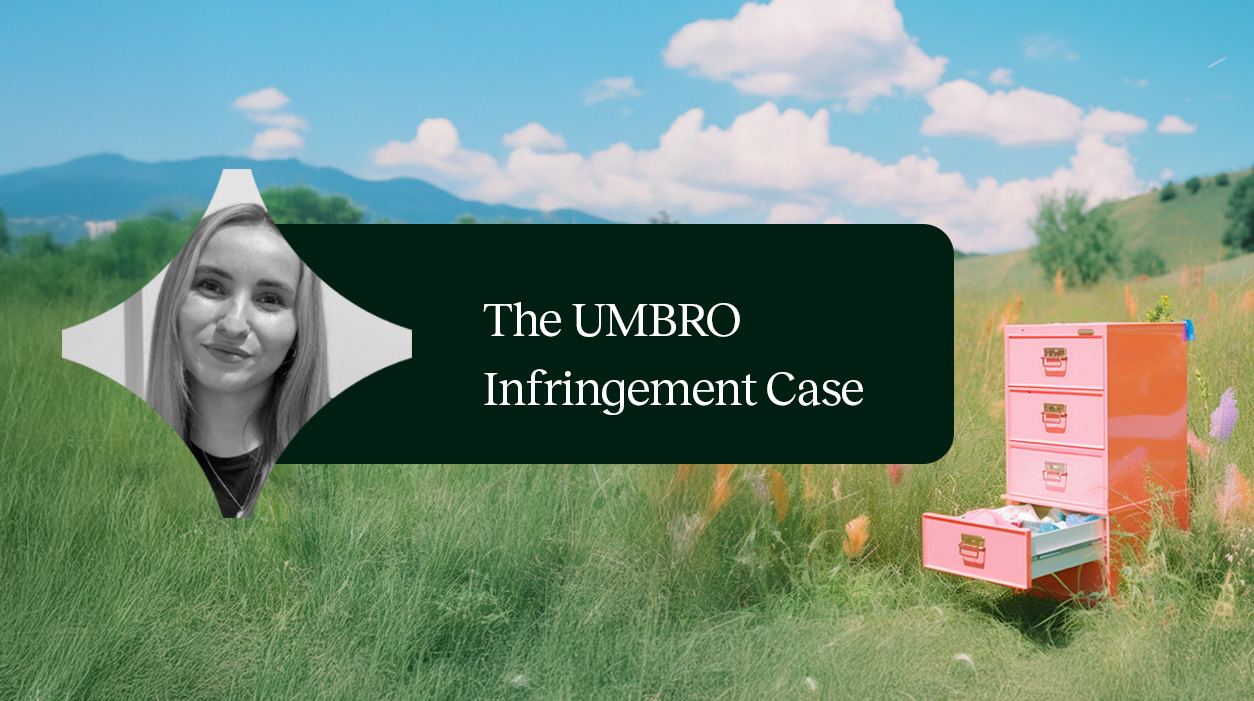Legal Services
We bring fresh perspectives and advanced legal technologies to address today’s IP challenges. From clearance searches through to enforcement, we help you build long-term strategies to create, evaluate, maintain, protect and monetise your intellectual property.
Get started with a consultation

Full legal assistance in all areas of intellectual property law
With a diverse and award-winning team, Abion is your brand defender, eliminating threats and protecting your intellectual property (IP) while you're busy innovating.
Acting as your in-house partner, we offer a single point of contact, delivering tailored solutions, helping you navigate complex IP landscapes, and simplifying the complexities of IP management, strategically and operationally.
Prosecution
- Trade Mark Clearance
- Trade Mark Prosecution
- Creation
- Filing (Trademark / Sound / Copyright / Design)
IP Management
- Trade Mark Portfolio Management
- Monitoring & Reporting
- Customs Protection
- Trade Mark Watch
- IP Asset Mapping
- Renewals
- Legal Consultancy
- IP Due Diligence
- Privacy, Data & E-Commerce Law
- Website Analysis
- Internet & Web 3.0
Enforcement
- Enforcement
- Opposition
- Litigation
- Resolution/Mediation
- Dispute resolution
Legal Consulting
We partner with our clients and act as a single point of contact and their extended in-house counsel to deliver tailored solutions for all aspects of IP management, strategically and operationally, including:
SERVICES
Explore more of our legal services
Insight & News
Knowledge Hub
Enforcement: getting ahead of the game
With over 90% of all brands experiencing some form of brand abuse, it is now more important than ever to take a proactive approach to monitor, detect and enforce your IP rights. Abion can help you stay one step ahead of fraudsters and transform how you tackle trade mark infringements and counterfeiting; helping to prioritise actions, protect your reputation and drive real ROI.


The only tool you’ll ever need
Manage your domain portfolio, your trade marks and your web security on our unique platform. It is smooth, efficient and collaborative – freeing up your valuable time to focus on other important matters.
Key features include:
- Registration of trade marks
- Overview of markets with and without protection
- Monitor and get notified of trade mark applications similar to yours
- Direct access to legal expertise regarding trade marks and domains
Would you like to know more about legal assistance?
Do you want consulting, advice or are interested in any of our legal services? Contact us and we will help you!
Legal Services Overview
In today’s competitive business environment, safeguarding intellectual property (IP) is crucial for maintaining a company’s unique identity and market position. Legal services in the area of IP protection and management ensure that businesses can secure, defend, and optimise their valuable assets, such as trade marks, patents, and copyrights. Comprehensive legal strategies not only protect these assets but also provide a framework for leveraging them to support growth and innovation.
Effective intellectual property management covers a range of services, from securing trade mark registrations to monitoring and enforcing rights against infringement. These legal services are essential for businesses seeking to prevent costly disputes, manage their IP portfolios, protect their brand's reputation, and benefit from the value of their creations. By engaging with experienced legal professionals, companies can protect their intellectual property and ensure compliance with the evolving legal landscape.
Abion offers a wide range of legal services, to guarantee easy management of your brand and trade marks.
Intellectual Property Management
Intellectual property (IP) is the lifeblood of any business, representing the unique ideas and innovations that set it apart in the marketplace. Safeguarding intellectual property, like trade marks and logos, maintains a business’s identity and competitive edge. A well-structured intellectual property strategy protects these assets and strengthens the company’s market position. IP management is a vital part of our legal services, and crucial for any corporation.
Proper management of intellectual property involves various strategies and services that ensure inventions and innovations are protected from infringement. Critical aspects of IP management, such as trade mark portfolio management and IP asset mapping, are essential for leveraging intellectual property to its fullest potential.
What is Intellectual Property?
Intellectual property (IP) refers to the creations that are legally protected from unauthorised use by others. These creations include inventions, literary and artistic works, designs, symbols, names, and images used in commerce. Intellectual property is a valuable asset for businesses and individuals, as it encompasses the unique ideas and innovations that distinguish them in the marketplace.
The main types of intellectual property include:
- Trade Marks: Protect brand names, logos, and symbols that distinguish goods or services.
- Patents: Grant exclusive rights to inventors over new inventions or processes.
- Copyrights: Safeguard original works of authorship, such as books, music, and films.
- Trade Secrets: Protect confidential business information, like formulas, practices, or methods that give a competitive edge.
- Shape Marks: Protect the distinctive shape of a product or its packaging, where the shape itself acts as a brand identifier (e.g., the unique shape of a bottle or product design).
IP protection allows creators and businesses to maintain control over their innovations, secure competitive advantages, and receive recognition or financial benefit from their work. Legal frameworks surrounding intellectual property are designed to encourage innovation and creativity, while ensuring that these assets are protected from unauthorised use or exploitation.
Trade Mark Portfolio Management
Managing an intellectual property portfolio effectively is vital for maintaining trade mark protection. Regular reviews, renewals and updates of trade mark registrations ensure they remain enforceable and reflective of current branding. A thorough audit of existing trade marks helps identify gaps and opportunities for future branding initiatives.
Regular audits help identify under-utilised trade marks that could be licensed or rebranded as well as uncover gaps in your protection. Keeping your trade mark portfolio up-to-date and strategically managed maximises the value and protection of your brand assets.
IP Asset Mapping
Mapping intellectual property assets helps businesses visualise their IP landscape, supporting better decision-making regarding asset utilisation. Identifying the potential value and leverage of IP allows businesses to strategically enhance their market position and growth prospects.
IP asset mapping also helps in identifying gaps in protection and areas where additional legal safeguards may be required. A comprehensive overview of IP assets allows informed strategic decisions making, ensures adequate protection of valuable IP and supports more efficient use of budgets. Including under our legal services umbrella, this is a service especially favoured by multi-brand corporations.
Trade Mark Services
Trade marks are a cornerstone of brand identity, and managing these assets effectively is crucial for maintaining brand recognition and customer loyalty. Trade mark services help businesses navigate the complexities of registering, protecting, and enforcing their trade marks, ensuring brand protection against infringement.
Various legal services within the trade mark umbrella, including prosecution, clearance, and watch services, collectively help businesses establish and protect their brand identity through comprehensive registration and monitoring processes.
Trade Mark Application and Registration
Trade mark application and registration are essential steps in securing legal protection for a brand's identity. A registered trade mark provides exclusive rights to use a particular name, logo, slogan, or design, preventing others from using similar marks that could confuse consumers. The registration process involves several key stages, starting with selecting the right type of application.
There are two primary types of trade mark applications:
- Use-Based Application: Filed when the trade mark is already in use in commerce. The applicant must provide evidence showing that the mark is actively being used for the goods or services described.
- Intent-to-Use Application: Filed when the applicant intends to use the trade mark in the future but hasn’t done so yet. This allows businesses to reserve a trade mark while preparing for its commercial use.
The application process typically begins with a comprehensive trade mark search to ensure the desired mark does not conflict with any existing trade marks. Once the application is submitted to the relevant national authority, it undergoes an examination. During this examination, the trade mark office reviews the application to ensure compliance with legal requirements and checks for any conflicts with existing marks.
If any issues arise, such as similarities to other trade marks or technical errors, the office may issue an objection or office action. Successfully responding to these objections, either through legal arguments or amending the application, is critical for securing trade mark registration. Once approved, the mark is published for opposition, giving third parties the opportunity to challenge the registration.
Completing the trade mark registration process grants businesses exclusive rights to the mark, offering robust legal protection and ensuring brand identity is safeguarded from infringement.
Trade Mark Clearance
As mentioned above, a trade mark clearance is crucial in the registration process, involving comprehensive searches to ensure a certain word trade mark does not infringe on existing marks. Conducting these searches helps avoid costly legal disputes and ensures that the new trade mark can be used without conflict.
Clearing a trade mark before use identifies potential conflicts with existing marks and mitigates the risk of legal disputes. Thorough trade mark clearance searches allow businesses to proceed confidently, knowing their chosen marks are unique and legally defensible.
Trade Mark Watches
Monitoring trade marks is an ongoing process that helps businesses detect potential infringements and take timely protective action. Trade mark monitoring services track potential infringements across various registers and domains worldwide, ensuring comprehensive brand protection.
Vigilant monitoring of registered trade marks allows businesses to swiftly address any unauthorised use or infringement, maintaining brand integrity and reputation as well as safeguarding customers from purchasing faulty goods or services.
Enforcement and Dispute Resolution
Trade mark enforcement and dispute resolution are critical components of protecting a brand’s identity and ensuring that registered trade marks are not infringed upon. Once a trade mark is registered, businesses must actively monitor and enforce their rights to prevent unauthorized use or dilution of their brand. There are several legal tools and strategies available for addressing trade mark violations and resolving disputes effectively.
Regular trade mark monitoring helps detect infringements and initiate timely protective actions. Common enforcement actions include filing website takedown requests when infringing content or domain names are found online, or using the UDRP process to recover domain names registered in bad faith. Another frequent action is removing counterfeit products from marketplaces, where platforms provide tools for reporting IP violations and taking down infringing listings.
For disputes, alternative dispute resolution (ADR) methods like mediation or arbitration offer quicker, cost-effective ways to settle conflicts without going to court. These actions help safeguard brand identity and prevent future infringements.
Litigation Management
Effective litigation management minimises disruption and cost in legal proceedings. Structured strategies ensure efficient use of legal resources, reducing the overall burden of litigation.
A comprehensive approach to litigation management includes strategies that prioritise reducing overall costs and minimising the impact on business operations. Effective litigation management helps businesses protect their interests and achieve better outcomes in legal disputes.
Licensing and Agreements
Licensing agreements protect intellectual property while enabling businesses to monetise their creations. These agreements ensure that intellectual property is used appropriately and that businesses receive fair compensation for their assets.
Mapping intellectual property assets helps businesses strategically assess and enhance their asset value. Leveraging IP asset mapping in licensing agreements allows businesses to highlight the economic significance of their intangible assets and negotiate more favourable terms.
Privacy, Data, and E-commerce Law
The regulatory landscape for e-commerce businesses is constantly evolving, particularly concerning data privacy and product liability. Compliance with laws like the GDPR and CCPA protects customer data and avoids hefty fines and is an integral part of our legal services.
E-commerce companies must also ensure secure payment processing in compliance with PCI DSS standards and implement robust cybersecurity measures to prevent data breaches and online attacks. Privacy policies and terms of service benefit from legal expertise to avoid liabilities and protect consumer rights.
Internet and Web 3.0 Legal Issues
The advent of Web 3.0 technologies brings unique legal challenges, particularly concerning decentralised platforms and virtual assets. Determining jurisdiction in these environments is complex due to the absence of a central authority.
Data privacy remains a major concern in decentralised networks, where personal information lacks centralised protection. Regulating virtual currencies effectively and providing clear guidelines for AI systems prevent fraud and maintain public trust.
Customs Protection
Counterfeit and pirated goods pose a significant threat to economies and consumer safety, prompting customs enforcement efforts. Customs authorities work with other government agencies to uphold intellectual property rights and combat unfair competition.
In fiscal year 2023, customs authorities seized over 19,500 shipments violating intellectual property rights, highlighting ongoing trade violations. Customs management protects intellectual property and ensures consumer safety.







